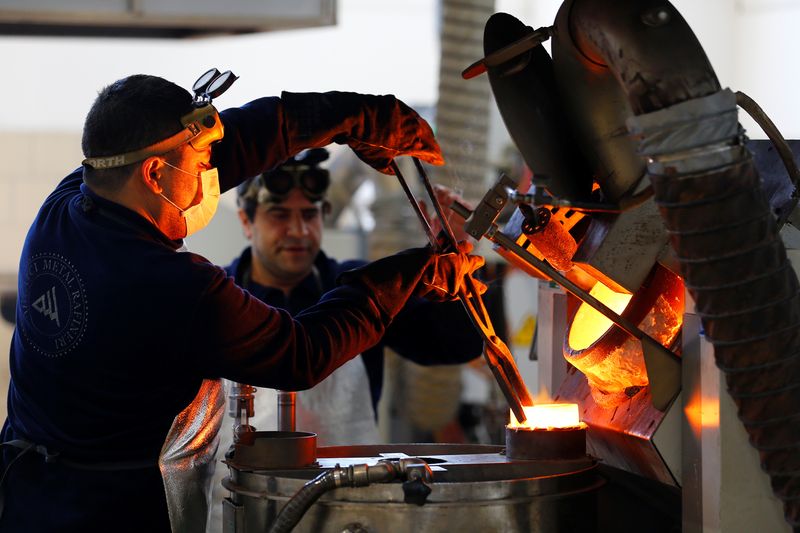ISTANBUL (Reuters) -Turkey's industrial production is expected to have expanded 6.5% in March, rising for a 21st consecutive month as factory activity remains strong despite rampant inflation and an ailing local currency, a Reuters poll showed on Tuesday.
Year-on-year growth has remained positive since coronavirus measures were eased in 2020. On a monthly basis, the index shrank 2.4% in January due to electricity and natural gas cuts at industrial facilities stemming from a technical failure in Iran.
The median estimate in the Reuters poll of seven institutions showed year-on-year growth of 6.5% in the calendar-adjusted industrial production index in March.
Forecasts for the index, seen as a preliminary indicator of economic growth, ranged between 2.5% and 12.5%.
Economists expect the pace of growth in the index to slow in coming months and approach a neutral level around summer. A potential drop in external demand or a supply chain disruption due to Russia's invasion of Ukraine could also impact industrial production after February.
In April of 2020, output plummeted more than 30% in the face of the initial coronavirus wave. It has since made a strong recovery because subsequent measures largely skirted the manufacturing sector, and most remaining restrictions were lifted in July of last year.
Turkey's economy grew 11% last year, up sharply from a year earlier, but a sharp selloff in the lira in December upended company and household budgets, and sent inflation soaring via import prices.
The late-2021 currency crisis and resulting jump to 70% inflation, as well as fallout from Russia's invasion of Ukraine, are expected to hamper growth in 2022.

The government and the central bank expect around 7% growth in the first quarter of 2022.
The Turkish Statistical Institute will announce March industrial production figures at 0700 GMT on May 13.